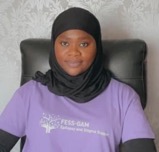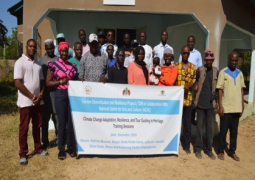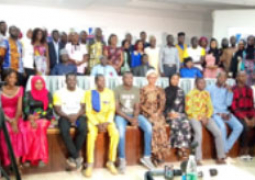
Founded as a non-profit, non-political, and non-religious organisation, FESSGAM is dedicated to raising awareness about epilepsy, dispelling myths, and ensuring better care for those living with this health condition.
Registered under The Gambia's Companies Act of 2013, the foundation also seeks to transform the lives of individuals and families affected by epilepsy through advocacy, education, and support.
The foundation’s objectives include health promotion through routine awareness campaigns, offering evidence-based guidelines for the care of people living with epilepsy, and serving as a principal support group for families and communities affected by the condition.
In a recent exclusive with The Point, Adam Jallow Janneh, president and co-founder of FESSGAM, revealed some of the challenges individuals face with epilepsy in The Gambia.
She disclosed that children who recover from meningitis are at a higher risk of developing epilepsy later in life.
“Globally, epilepsy is one of the leading causes of disability and the second leading cause of death among neurological disorders. In The Gambia, it is estimated to be between 30,000 to 35,000 people of the population is affected by epilepsy, a condition that has serious physical, mental, economic, and social consequences.”
She also noted that FESSGAM's first project in 2020 marked a critical step forward in their fight against epilepsy in The Gambia, adding that the foundation installed a diagnostic test machine, the first of its kind in the country, which allows for the remote analysis of EEG results by experts in the UK.
The initiative, she went on, addresses a significant gap in the country’s healthcare system, where epilepsy patients were previously misdiagnosed and treated at psychiatric facilities, despite the fact that epilepsy is a neurological, not a mental health condition.
Mrs. Janneh also called on people to always dispel the myths surrounding epilepsy, including the harmful belief that those with epilepsy are possessed by jinns.
She urged Gambians to recognise that epilepsy is a treatable neurological condition and that people with this health problem can live full, productive lives and contribute meaningfully to national development.
“Epilepsy doesn’t discriminate, and no one chooses to live with the condition. Anyone with a brain can have a seizure,” said Mrs. Janneh.
She thus called on people to educate themselves about the condition, learning seizure first aid and knowing what to do ‘if you come across it.’





